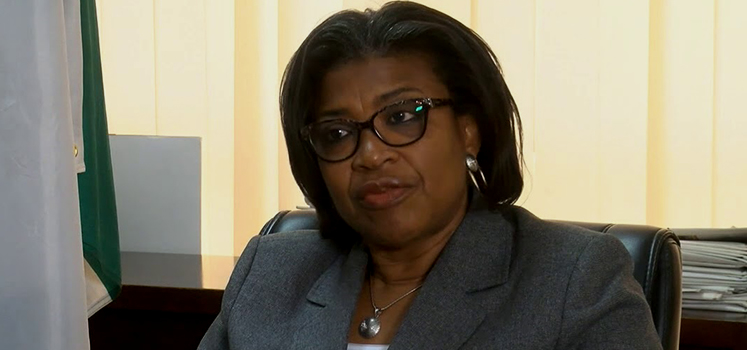By John Ikani
Nigeria’s Debt Management Office (DMO) has insisted that Nigeria did not and will never mortgage its national assets to China in it’s securing of Chinese loans.
Ms Patience Oniha, the Director-General of DMO made this known in an interview with newsmen on Saturday in Abuja.
The clarification from the DMO follows reports that the Federal Government risks losing key national assets to China in the event of default in paying back loans gotten from China.
Recall that in August 2020, Nigeria’s Minister of Transportation, Rotimi Amaechi, reportedly hinted about the possibility of Nigeria forfeiting its assets to China in the event of loan default, as China could take the country to arbitration in the event of a default.
He, however, added that there would be no need for China to claim any infrastructure once Nigeria repaid its loans to the Asian country.
What Director-General of DMO is saying
Oniha during the interview clarified that the loans were largely concessional, as no national asset was tagged as collateral. She said, “Nigeria’s total debt stock as at September 30 was 37.9 billion dollars, this figure comprised the external debt stock of the Federal Government, 36 state governments and the Federal Capital Territory.
“But total loans from China stands at 3.59 billion dollars, which is 9.47 per cent of the total external debt. The loans did not require any national asset as collateral; they were largely concessional.’’
Oniha urged Nigerians to always endeavour to verify sensitive information from official sources before disseminating it, adding that before foreign loans were contracted, very sensitive steps were taken by multiple institutions of Government to ensure that they were beneficial to the nation.
She said, “Before any foreign loan is contracted, including the issuance of Eurobond, they are approved by the Federal Executive Council and thereafter, the National Assembly. An important and extremely critical step is that the loan agreements are approved by the Federal Ministry of Justice.
“An opinion is issued by the Attorney-General of the Federation and Minister of Justice before the agreements are signed. Several measures which operate seamlessly have been put in place to ensure that data on debt are available and that debt is serviced as at when due. Provisions are made explicitly for debt service in the annual budgets.’’
Going further, Oniha explained that the loans agreements provided a number of steps to take to resolve disputes when they arise.
She said, “The first action is that the parties should resolve it within themselves and if that fails, they go to arbitration. In other words, a lender, in this case, China, would not just pounce on an asset at the first sign of a dispute, including defaults.’’
She explained that the DMO in conjunction with the CBN and the Office of the Accountant-General of the Federation, maintained proper records of debts, provided projections for debt service and processed the actual payments for debt service.




































